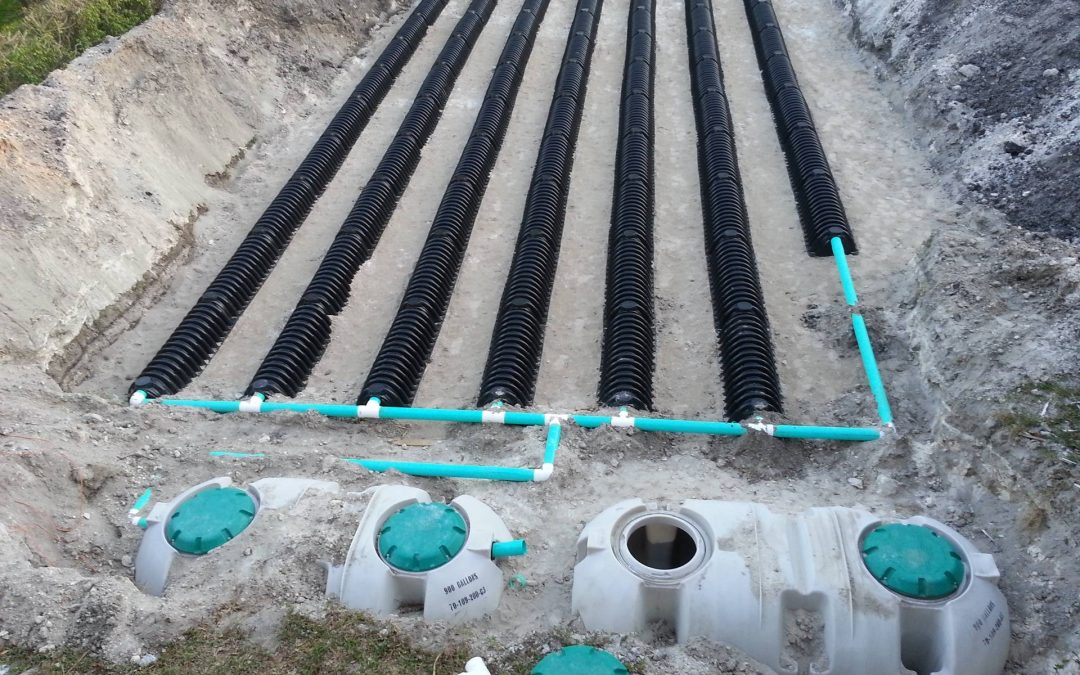Septic systems are used for septic and waste disposal, containment and treatment for homes and properties not serviced by public sewer systems. Many homes are connected to the city sewage systems although there are some homes that have on-site systems like septic systems which need to be always reliable and fully functional.
Septic systems allow showers, toilets, and kitchen sinks to drain from your house, so they must be properly maintained and kept safe from damage. Your septic system is responsible for disposing of toxic waste safely and securely, which means it cannot suffer damage. Septic systems are durable and robust, but they do withstand heavy abuse and are more prone to issues than a standard sewer connection line would be. Even a very minor problem can have serious repercussions for your entire drain system, and this can lead to very nasty conditions because of sewage and waste back up in your drains.
While wear and tear are inevitable, the good news is you can avoid serious damage and a little bit of effort will help keep your septic system working great and free from major problems. A few extra precautions and some simple decisions regarding the way you run your home can make a big difference, and the following tips will help prevent damage to your septic system:
1. Be mindful of what you drain.
You can’t just flush everything and must be mindful of what you place down your drain. This rule applies if you are connected to the city’s sewage system but is especially important for a septic system because it uses bacteria and microbes in septic tanks that dissolve waste. Pouring any sort of chemical that kills these microbes will result in serious problems for your septic system and major headaches for yourself!
While your septic system can digest food particles, these particles often float in the effluent layer of your septic tank and may end up in your leach field. There, they may clog the pores needed to filter and expel treated water, causing your tank to fill and overflow quickly.
If you want to use a garbage disposal with your septic system, it is recommended that you have your system pumped every year to prevent this damage and clogging. This is recommended regardless of the size or holding capacity of your tank.
2. Watch out for trees.
Do you know where your septic system is located underground? Most homeowners do not, and this can be a problem. The builder most likely knew where the septic system was located and avoided having vegetation over them. Still, if you are unaware of this information, you might accidentally plant a tree on top of your septic system, resulting in a disaster! Tree roots will damage both the septic tank and the leach bed, and this type of damage may require a complete replacement of your septic system.
Grass is technically fine, but you should not plant any sort of plant on top of your septic system under any circumstances.
3. Use less water and check for leaks.
Homeowners must recognize that it takes time for the wastewater to be processed in the septic tank before it is transferred to the drain field. Your septic tank can handle the wastewater it receives under normal consumption, but if you have a leaking pipe or a dripping faucet, the septic tank may overflow, and the wastewater that has not been processed yet may seep into the drain field. This can also occur if you are using too much water at a time.
4. Maintain your system.
Septic systems can last a long time with proper maintenance. However, failure to maintain your system may result in the premature failure of your entire septic system, which is why you cannot forget about this step! It is recommended that you have your septic tank drained every 3 to 5 years, although this can change depending on how much you use it.
Septic tanks are tough and highly resilient, but they still require care, and you must clean your system periodically to ensure your septic system lasts as long as possible.
Get Your Septic System Professionally Installed with Schlager
Are you interested in professional septic system installation? Schlager Excavating & Haulage can help! Contact us today to learn more about our services!

